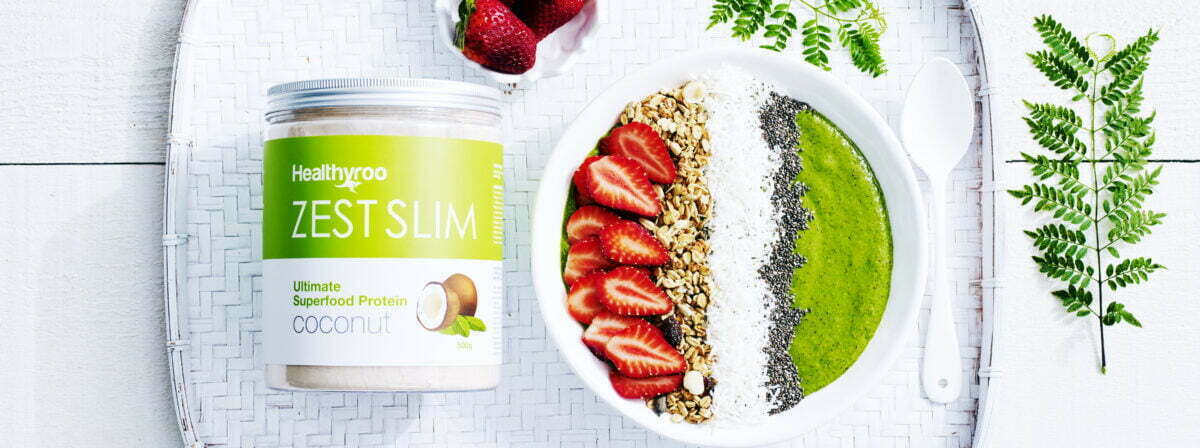10 Myths about Plant-based Protein Powders Debunked
Myth 1: Plant-based protein powders are incomplete proteins.
Fact: Many myths about plant-based protein powders still exist. One of the myths that plant-based protein powders is incomplete proteins is rooted in the misconception that plant-based sources cannot provide all nine essential amino acids required for optimal health. However, several plant-based protein powders, such as soy, quinoa, and hemp, contain all these essential amino acids, making them complete proteins. Moreover, by combining different plant-based protein sources, individuals can obtain a complete amino acid profile, providing all the necessary building blocks for their body’s protein synthesis.

Research has also shown that as long as an individual consumes a variety of plant-based protein sources throughout the day, their body can effectively use the amino acids for protein synthesis, debunking the myth that plant-based proteins are inferior to animal-based proteins.
Myth 2: Plant-based protein powders can’t build muscle as effectively as animal-based protein powders.
Fact: The idea that plant-based protein powders are less effective than animal-based protein powders in building muscle is based on the assumption that plant proteins have a lower biological value and are less digestible. However, recent studies have demonstrated that plant-based proteins can promote muscle growth and recovery more effectively than their animal-based counterparts when consumed in sufficient quantities. For example, a study published in researchgate demonstrates that Pea proteins oral supplementation promotes muscle thickness gains during resistance training: A double-blind, randomized, Placebo-controlled clinical trial vs. Whey protein.

The key to building muscle effectively with plant-based protein powders is to ensure an adequate protein intake and a balanced amino acid profile, which can be achieved by combining different plant-based protein sources.
Myth 3: Plant-based protein powders are not suitable for athletes.
Fact: The notion that plant-based protein powders are unsuitable for athletes is based on the misconception that these powders lack essential nutrients and do not provide enough protein for optimal athletic performance. In reality, many professional athletes, including endurance sports participants and bodybuilders, have successfully incorporated plant-based protein powders into their diets to support their performance.

Plant-based protein powders can provide an adequate supply of essential amino acids, vitamins, and minerals for muscle growth, repair, and overall health. Additionally, some plant-based protein powders, such as pea and soy, have been shown to support muscle recovery and reduce inflammation, benefiting athletes during their training and recovery periods.
Myth 4: Plant-based protein powders taste bad.
Fact: Taste is subjective, and the belief that all plant-based protein powders taste bad is a generalisation that does not account for individual preferences and the wide variety of flavours and formulations available. Many plant-based protein powders, such as vanilla, chocolate, and fruit, come in various flavours and are often considered as tasty as their animal-based counterparts.

Furthermore, the quality and taste of plant-based protein powders have improved significantly in recent years due to advancements in processing methods and ingredient sourcing. As a result, it is now easier than ever to find a plant-based protein powder that suits one’s taste preferences.
Myth 5: Plant-based protein powders cause nutrient deficiencies.
Fact: The belief that plant-based protein powders lead to nutrient deficiencies stems from the assumption that plant-based diets cannot provide all the necessary nutrients for optimal health. However, a balanced diet that includes a variety of plant-based protein sources, such as legumes, whole grains, nuts, and seeds, can provide all the necessary nutrients, including essential amino acids, vitamins, and minerals.

Plant-based protein powders can be a valuable addition to a well-rounded plant-based diet. They can help individuals meet their daily protein requirements and provide additional nutrients like fibre and antioxidants. By incorporating various plant-based protein sources into their diet, individuals can
ensure they receive all the nutrients they need for optimal health and avoid potential deficiencies.
Myth 6: All plant-based protein powders are low in protein.
Fact: The misconception that all plant-based protein powders are low in protein likely arises from the belief that plant-based foods, in general, are protein-deficient. However, some plant-based protein powders, such as pea, soy, and hemp, contain as much protein per serving as animal-based protein powders like whey or casein.

The protein content of plant-based protein powders can vary depending on the source. Still, many options provide substantial protein to help individuals meet their daily requirements. Individuals can effectively support muscle growth, repair, and overall health by choosing a high-quality plant-based protein powder and consuming an adequate amount.
Myth 7: Plant-based protein powders are expensive.
Fact: The price of plant-based protein powders can vary depending on factors such as the source of protein, brand, and production methods. While some plant-based protein powders may be more expensive than their animal-based counterparts, many options are competitively priced and provide an affordable alternative for those seeking a plant-based protein source.
As the demand for plant-based protein powders continues to grow, economies of scale and increased competition in the market may further drive down prices, making these products more accessible to a broader range of consumers.
Myth 8: Plant-based protein powders are difficult to digest.
Fact: The idea that plant-based protein powders are difficult to digest stems from the belief that plant proteins are less bioavailable and harder for the body to break down than animal proteins. However, many plant-based protein powders are easily digestible, especially when compared to animal-based protein powders, which can cause digestive discomfort for some individuals. Plant-based protein sources such as peas, rice, and hemp are well-tolerated and easy to digest for most people.
Additionally, many plant-based protein powders are free from common allergens, such as lactose and gluten, reducing the likelihood of digestive issues. Consumers can support their digestive health and overall well-being by choosing a plant-based protein powder suitable for their individual needs.
Myth 9: Plant-based protein powders are always organic and free from chemicals.
Fact: Like any other food product, the quality and purity of plant-based protein powders can vary. While some plant-based protein powders are certified organic and free from harmful additives or contaminants, others may contain synthetic ingredients, pesticides, or heavy metals.

Consumers must choose certified organic products and third-party tested for quality and purity to ensure they consume a safe and healthy product. Reading labels, checking for certifications, and researching the brand’s production methods can help individuals select a high-quality plant-based protein powder that meets their needs and standards.
Myth 10: Plant-based protein powders are only for vegans and vegetarians.
Fact: The belief that plant-based protein powders are exclusively for vegans and vegetarians overlooks the many benefits these products can offer individuals with various dietary preferences. Plant-based protein powders can be a healthy and sustainable option for anyone looking to incorporate more plant-based foods into their diet, regardless of whether they consume animal products.

In addition to providing essential nutrients and supporting muscle growth and repair, plant-based protein powders have a lower environmental impact than animal-based powders, as they require less land, water, and energy to produce. By incorporating plant-based protein powders into their diet, individuals can enjoy the health benefits while contributing to a more sustainable food system.

